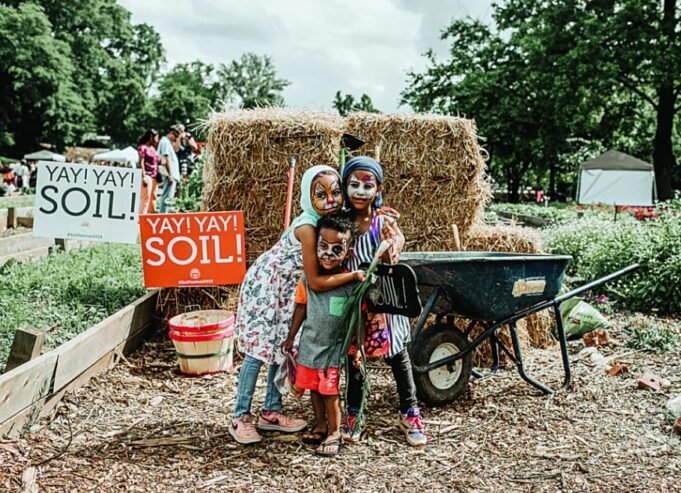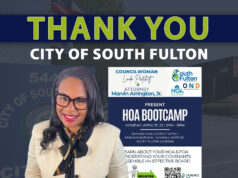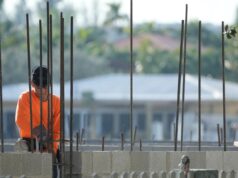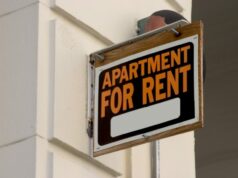Food Well Alliance (FWA), Truly Living Well Center for Natural Urban Agriculture (TLW) and WABE are hosting the 7th annual Soil Festival on Saturday, May 7, 11 a.m. to 3 p.m. at TLW’s urban farm in West Atlanta.
Attendees will be able connect with the cycle of locally grown food through workshops, cooking demos, kids’ activities and more. Tickets are available at foodwellalliance.org.
“What excites me most is teaching people who haven’t planted before or showing them how easy it is to compost at home,” said Carol Hunter, TLW Executive Director. “We are here to teach people to grow their own food for self-sufficiency, health and helping the environment.”
Atlantans are eager to gather again and engage with local growers as evidenced by the February fruit tree sale hosted by FWA, Concrete Jungle, Community Farmers Markets and the Community Orchard Coalition.
Food Well Alliance Executive Director Kate Conner.
“We had over 400 people come out to buy trees and sample food and teas made with local fruit,” said Kate Conner, FWA Executive Director. “For us, it’s really about bringing community together and local food is the tool for that.”
With the fruit tree sales proceeds, support from The Giving Grove and a Direct Relief grant, the coalition just planted 18 new orchards that donate a percentage of fruit to those in need, including at: Campbellton Community Garden, Gardens at Camp Creek and Whitehall Terrace Community Garden.
“It was so popular we will probably open a fall application for more orchards,” Conner said. “It’s all about getting the right partners in place, figuring out the model and going from there.”
FWA is a collaborative network striving to build equitable local food systems by providing resources to local growers and engaging in policy. What started in 2015 as an idea by Jim Kennedy, chair of Cox Enterprises, and Bill Bolling, founder of the Atlanta Community Food Bank, today supports more than 120 community gardens and 35 urban farms in Fulton, DeKalb, Cobb, Gwinnett, and Clayton counties.
Working with partners, FWA offers a range of resources – tools, mechanical support, labor support, volunteers, compost, and funding. Take labor, for example. Using sustainable farming practices is labor intensive. So FWA offers metro Atlanta farmers different options of support: a 1-to-4-person crew from Eco-PARADIGM, labor stipends to cover their own laborers or volunteer support.
“Collaboration and partnership to support this movement is huge to us,” Conner said. “Our role is bringing the resources together under one umbrella.”
EliYahu Ysrael at Atlanta Harvest.
FWA and Westside Future Fund have partnered to create that literal umbrella at the 970 Jefferson Street building. This former Atlanta Community Food Bank location is now a collaborative hub of offices, warehouse space and cold storage.
“What was once a giant food warehouse, accommodates many mission-aligned nonprofits, like Second Helpings Atlanta, The Giving Kitchen, Urban Recipe and Community Farmers Markets’ Fresh MARTA Markets, plus clients who use the warehouse or need cold storage – like Gangstas to Growers and Atlanta Mission,” Conner said.
When access to flexible funds is needed, FWA steps in. The nonprofit just awarded 65 community gardens with a $1,500 grant and 30 urban farms with a $5,000 grant.
For Atlanta Harvest that flexibility was critical when their Jonesboro farm lease dissolved in 2020. EliYahu Ysrael asked FWA to shift their grant funds to a down payment on land in Ellenwood.
“We said ‘absolutely’” Conner shared. “This is a family farm that they own and can invest in for generations.”
The Ellenwood farm is thriving with fruit trees, added infrastructure and expanded farm stand hours.
“Opportunities for urban farms to purchase and own land within Atlanta are few and far between,” Ysrael said. “To find an organization that truly believes in us and what we want to do for our community has been a dream come true. We are so grateful to FWA for their trust in our family’s vision.”
As density and development increases, other metro Atlanta’s farms and community gardens are vulnerable. That’s why, FWA works with the Atlanta Regional Commission (ARC), local growers and municipalities to ensure that urban agriculture has a voice in city planning.
Carol Hunter, Executive Director of Truly Living Well, provides a demonstration at the Community Compost Lab located on TLW’s farm.
“Partnering with the Food Well Alliance has been a gamechanger for urban agriculture and building a local food ecosystem here in East Point,” said East Point Mayor Deana Holiday Ingraham. “Through the guidance and support of the Food Well Alliance and Atlanta Regional Commission, we’ve established a City Agriculture Plan that provides a framework for equitable access to healthy food in East Point which can be a model for cities of similar size.” Now in the implementation phase, East Point has leveraged its $75,000 FWA grant with a $250,000 USDA grant.
The City of Alpharetta is up next and has begun the community engagement phase, seeking to balance development with land preservation and environmental protection.
“No city is coming at it for the same reason but it’s incredibly important to get government to support the reason why they want the local food movement strong in their community,” Conner said.
With all the stories of empty shelves at grocery stores, food shortages, and delivery issues, Conner encouraged Atlantans to “meet a farmer in your neighborhood, go to a community garden, grow something in your own yard, become connected to local food because that is a hopeful movement.”
Truly Living Well Center for Natural Urban Agriculture
324 Lawton St SW
foodwellalliance.org
Admission $25 for adults, $5 for youth (16 and under), and FREE for seniors and neighbors in the TLW service area: Ashview Heights, Atlanta University Center, Bankhead, Capitol View, Capitol View Manor, English Avenue/Vine City, Hunter Hills, Just Us, Mozley Park, Washington Park, West End, and Westview.
Source: Reporter Newspapers & Atlanta Intown | #Growing #Soil #Healthy











